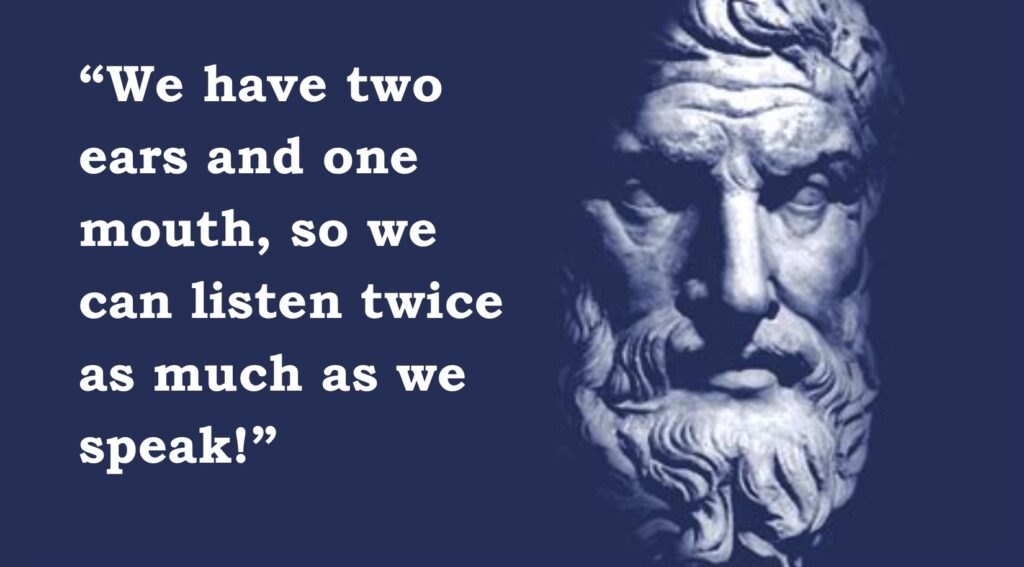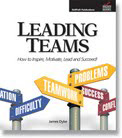Management guru John Baldoni is the author of The Leader’s Pocket Guide: 101 Indispensable Tools, Tips, and Techniques for Any Situation, and Lead Your Boss.
In his books he highlights three critical elements that equip people to lead effectively from the middle. These are personal qualities that are absolutely necessary to build trust with subordinates, colleagues, and higher-ups—qualities that enable a mid-level manager to become a valued source of influence in their organization:
- Competence: You have to be able to do your job well.
- Credibility: Other people need to believe you know what you’re doing and can do the job well.
- Confidence: Not only must you be confident in yourself—in your ability to do the job and to lead others—other people must also have confidence in you.
I would add a fourth C to Baldoni’s list: Consideration… consideration for other people. There is an old adage,
“People don’t care how much you know until they know how much you care.”
Caring about and caring for others is central to leading by inspiration rather than coercion.
The first fourth of my book, Leading Teams, is all about how to become an inspirational leader. Each chapter explains one of the ABC’s of Inspirational Leadership:
- Acquiring Respect;
- Building Trust;
- Communicating Compassion;
- Demonstrating Competence;
- Engaging Emotions;
- Forging a Vision; and
- Gaining Support.
I’m not going to try and summarize seven chapters in this newsletter. Just get the book. Here’s a link to find it on Amazon: Leading Teams: How to Inspire, Motivate, Lead, and Succeed!: James Dyke: 9781934589007: Amazon.com: Books
Instead, I’m going to focus this issue on the art of collegial consideration.
If you want to collaborate more effectively with others in your organization, here are some practical things you can do to demonstrate consideration for colleagues, subordinates, higher-ups, clients and vendors…
1. Take time to learn about the work that others do. Find out what it takes for them to do their jobs effectively. It will give you a much better understanding of the demands they face; the needs they have; how to build agreements with them more easily; and generally how to work with them more effectively. Start with your own subordinates, but don’t stop there!
Reach out to colleagues in other departments, especially the ones you must work with and collaborate with on a regular basis (finance, shipping, marketing, WHATEVER)…
2. Find out what they need from you in order to do their work effectively. And give them what they need! Jump through whatever hoops they require of you, to conform to their processes and procedures. Give them realistic deadlines to work with. Help them to succeed.
3. Be willing to listen to other people’s information, ideas, instruction. Be open to their feedback about you and your team, and especially any ideas about how you and your people might be able to improve your performance and productivity.
Up Close and Personal
One of the feedback exercises I have teams do is “Continue; Stop; Start.” That allows team members to give each other valuable feedback to help them become more effective… to let each other know…
(1) This is what you are doing that is helping me be effective… CONTINUE doing that;
(2) This is what you are doing that is getting in the way of us working effectively together… I would like you to STOP doing it; and
(3) This is something you aren’t doing yet that would help me collaborate more effectively with you… I would like you to START doing this.
It wouldn’t surprise me if many people in the workplace were resistant to being told what to do or how to do what they do—especially if that information comes from a colleague with no real management authority to wield.
But you CAN approach colleagues in the workplace and give them permission to suggest ways that YOU could work with them more effectively! Here’s a simple way to request that information—a question that encourages helpful responses and healthy dialogue from others:
What do you need from me (and my team) in order to be able to do your job easily and effectively?
You may discover that just asking the question is enough to generate positive support from the people you ask!
And here are some other things you can do, to build consideration in the workplace:
4. Get to know other people better. Find out what makes them tick—their motivations, chief concerns, worries, pet peeves, and idiosyncrasies. I have a networking questionnaire I give to my coaching clients to use for this process (it has a lot more detail). If you want a copy, let me know and I’ll send one to you.
5. Share credit with others. Be lavish with praise and appreciation. Don’t ever let anyone you know (or work with) feel that you take them (or what they do) for granted.
6. Show deference to others by being flexible and working within their constrictions of time and schedule as much as possible. Don’t expect other people to conform to your expectations of availability and accessibility! For example, don’t send them an email at 4 a.m. and then call them on the phone at 6 a.m. to ask them why they haven’t responded!
And one more “biggie” …
7. Practice being a better LISTENER. Nothing communicates RESPECT faster or more clearly than humble, open-minded, non-defensive LISTENING. I’m sure you recognize this famous piece of wisdom from the Greek philosopher Epictetus…
These are just a few simple, practical things you can do to demonstrate consideration for others. If your career is stalling, or you need help to develop your executive charisma, give us a call! We can help you address the issues that are holding you back from promotion and advancement, and get you moving forward in your job and your organization.
Until next time… Yours for better leaders and better organizations,
Dr. Jim Dyke – “The Boss Doctor” ™ helping you to BE a better boss and to HAVE a better boss!






